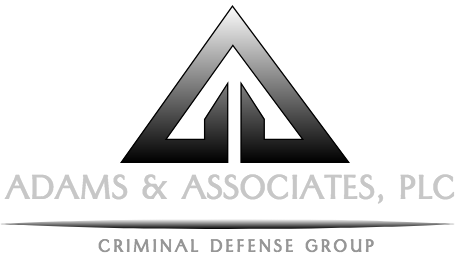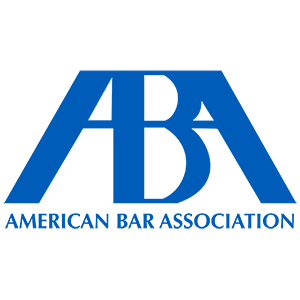DOJ’s White Collar Crime Priorities for 2024
April 2, 2024
At the American Bar Association’s 39th National Institute on White Collar Crime, Deputy Attorney General Lisa Monaco addressed the DOJ’s priorities for this year. These priorities are:
- Continuing to execute DOJ’s core strategies.
- Instituting a carrot-and-sticks approach to incentivize reporting wrongdoing.
- Designing and implementing a whistleblower rewards program.
- Addressing the rise of AI.
The DOJ is continuing to execute its core strategies: investing significant resources into investigating and prosecuting serious crimes; holding individuals accountable; and exacting stiff penalties against corporate recidivists.
“We’re not simply bringing cases – we’re also building an enforcement framework that promotes good corporate citizenship.”
As companies can only act through individuals, individual accountability continues to be a focus of the DOJ. Through such accountability, the DOJ seeks to promote fairness, drive deterrence, foster respect, and build a culture of compliance. The DOJ continues to pursue every case up the corporate ladder and bring more serious charges against senior executives. Highlighted to illustrate this goal were the convictions of the FTX and Binance CEOs.
“I can assure you the price of committing another violation will be far higher than the cost of preventing one.”
The DOJ continues to insist that a history of misconduct matters, stressing misconduct is “not the cost of doing business,” thus enforcing harsher penalties against corporations continuing to engage in wrongdoing. The DOJ highlighted its Ericsson and Teva Pharmaceutical convictions, which imposed stricter penalties on the respective companies in consideration of their prior violations. Of note was the novel approach to the Teva Pharmaceutical case, which required specific performance to sell off an entire product line as a part of their remedy.
The DOJ is also prioritizing the implementation of a carrot-and-sticks approach to promote responsible corporate citizenship through two methods: clawbacks programs and voluntary self-disclosure programs. Under the clawbacks approach, the Criminal Division provides dollar-for-dollar credit to companies that claw back or withhold compensation from their culpable employees.
“No matter how good a company’s cooperation, a resolution will always be more favorable with voluntary self-disclosure.”
The Voluntary Self Disclosure Program conditions any offered benefits on the company’s willingness to disgorge profits, upgrade compliance systems, and cooperate in investigations of culpable employees. New York’s USAO is leading its own VSD program, as well, which provides non-prosecution agreements to specified categories of culpable individuals who self-disclose their wrongdoing and cooperate against more culpable parties.
Additionally, the DOJ is focused on encouraging whistleblowers to act. The DOJ first announced the codification of last October’s corporate acquisition disclosure program (applicable to bona-fide arms-length transactions) to the DOJ’s Justice Manual. The DOJ next introduced its Whistleblowing Program, which began, as of the 39th National Institute on White Collar Crime, its 90-day sprint pilot program. This program will officially begin later this year. The goal of the program is to create a multiplier effect. The encouragement for companies and individuals to report what they know allows for the strongest cases to be built against the most culpable wrongdoers and the harshest penalties to be imposed against those most deserving of it. Monetary reward programs for whistleblowers have been successful in the past but limited in scope: the IRS and FinCEN programs are limited to misconduct within their agencies’ jurisdiction and qui tam action programs apply only to fraud against the government. The DOJ’s announced program fills the gap.
The basic premise of the program is to offer monetary rewards to individuals who help the DOJ discover significant corporate or financial misconduct of which the DOJ was not already aware. The monetary reward is a proportion of any resulting forfeiture. Payments are only to those not involved in the criminal activity and who submit truthful information not previously known by the government, and only after the proper compensation of all victims. The program operates only where there is not a pre-existing financial disclosure incentive, including those previously discussed.
The DOJ has a special interest in whistleblowers reporting any of the following:
- Criminal abuses of the U.S. financial system,
- Foreign corruption cases outside the SEC’s jurisdiction, D
- Domestic corruption cases – with a specific interest in illegal corporate payments to government officials.
“All new technologies are a double-edged sword – but AI may be the sharpest blade yet.”
Finally, the DOJ addressed AI in white-collar crimes. The DOJ made clear that wrongdoing using AI – fraud, price fixing, market manipulation – is still wrongdoing. The DOJ is addressing AI by implementing sentencing enhancements for the use of AI when deliberately misused to increase the severity of white-collar crimes. Additionally, the DOJ’s prosecutors’ evaluation of Corporate Compliance Programs will include, wherever possible, an analysis of the company’s risk mitigation regarding AI. Given this goal, the Criminal Division has been instructed to incorporate disruptive technology (including AI) risks into its Evaluation of Corporate Compliance Programs guidance. The DOJ also introduced its Justice AI initiative, consisting of a series of convenings bringing together stakeholders from various areas and industries to address AI’s impacts. In sum, the DOJ is addressing AI’s continued growth through existing sentencing guidelines and corporate enforcement programs.
In summary, the DOJ’s priorities for 2024 are the continuation of core strategies (efficient use of resources, accountability, and penalizing recidivism), incentivizing the reporting of wrongdoing (clawbacks and self-reporting programs), implementation of a monetary reward whistleblowing program, and addressing upcoming problems surrounding AI.
*The preceding article appeared in our April 2024 Newsletter, which you can download here.








